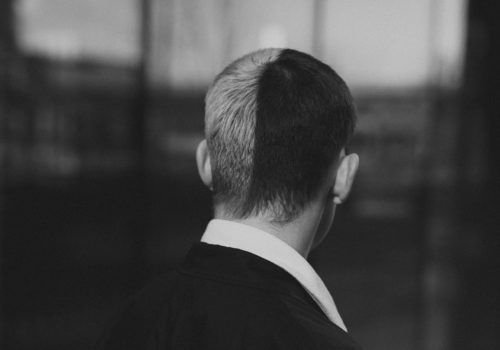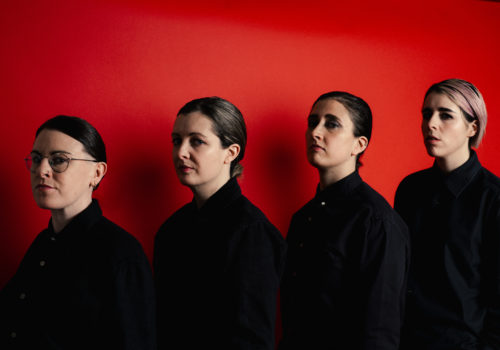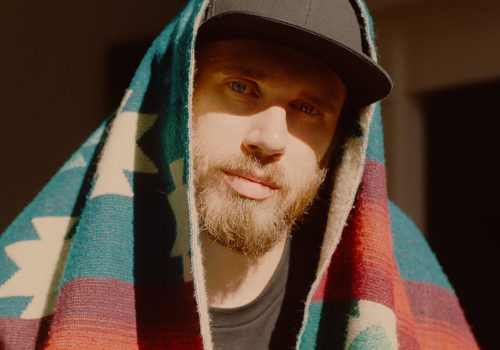Denise Chaila on her influences, winning the Choice Prize and developing her sound





Photograph: Shane Serrano
Words: Kelly Doherty
Photography: Shane Serrano and Jameson
This St. Patrick’s Day, Jameson Connects presents ‘Join In’, a virtual gig featuring two of Ireland’s leading acts in Denise Chaila and Kojaque alongside a host of international luminaries including Jessie Reyez. Ahead of the March 17 event we caught up with the Kingcess herself, Denise Chaila for her first interview since winning the Choice Music Prize.
To tune into Jameson Connects ‘Join In’ follow this link and register ahead of March 17. Join in wherever you are!
“You know when an animal falls asleep in your lap, and it’s the best thing in the world, and you can’t move or breathe, because you don’t want to wake them up and risk breaking the moment? That’s kind of where I’m at with everything”.
Denise Chaila
Denise Chaila is a musician on a dream trajectory. In the brief two years since the release of her debut EP Copper Bullet/Duel Citizenship, the Zambian-born, Limerick-based rapper has propelled herself out of the category of ‘One-To-Watch’ into becoming Ireland’s eminent breakout star. The past year has been a wild ride for Chaila with the release of her debut mixtape Go Bravely winning her fans across Ireland and further beyond. The most recent milestone in Chaila’s extraordinary journey is winning the Choice Music Prize’s much-coveted Album Of The Year Award.
Winning Album of the Year with a mixtape is certainly a flex but, for Chaila, glory largely lies in the impact her victory may have on the communities she’s a part of. “It means that I’m the first Black woman, Black femme, who won the award. Right? That’s a really big deal. It means there’s a really large Zambian community in Ireland, who felt very, very invested in the Choice this year because of me, in a way that they haven’t felt invested before, and had access to a conversation that they didn’t have a desire or permission to have access to prior to it” says Chaila. “That excites me, and, enthuses me that I was able to be instrumental in that journey. I think it means that what I’m doing musically, in terms of rap and hip-hop is being recognized and canonized in a way that I didn’t anticipate”.
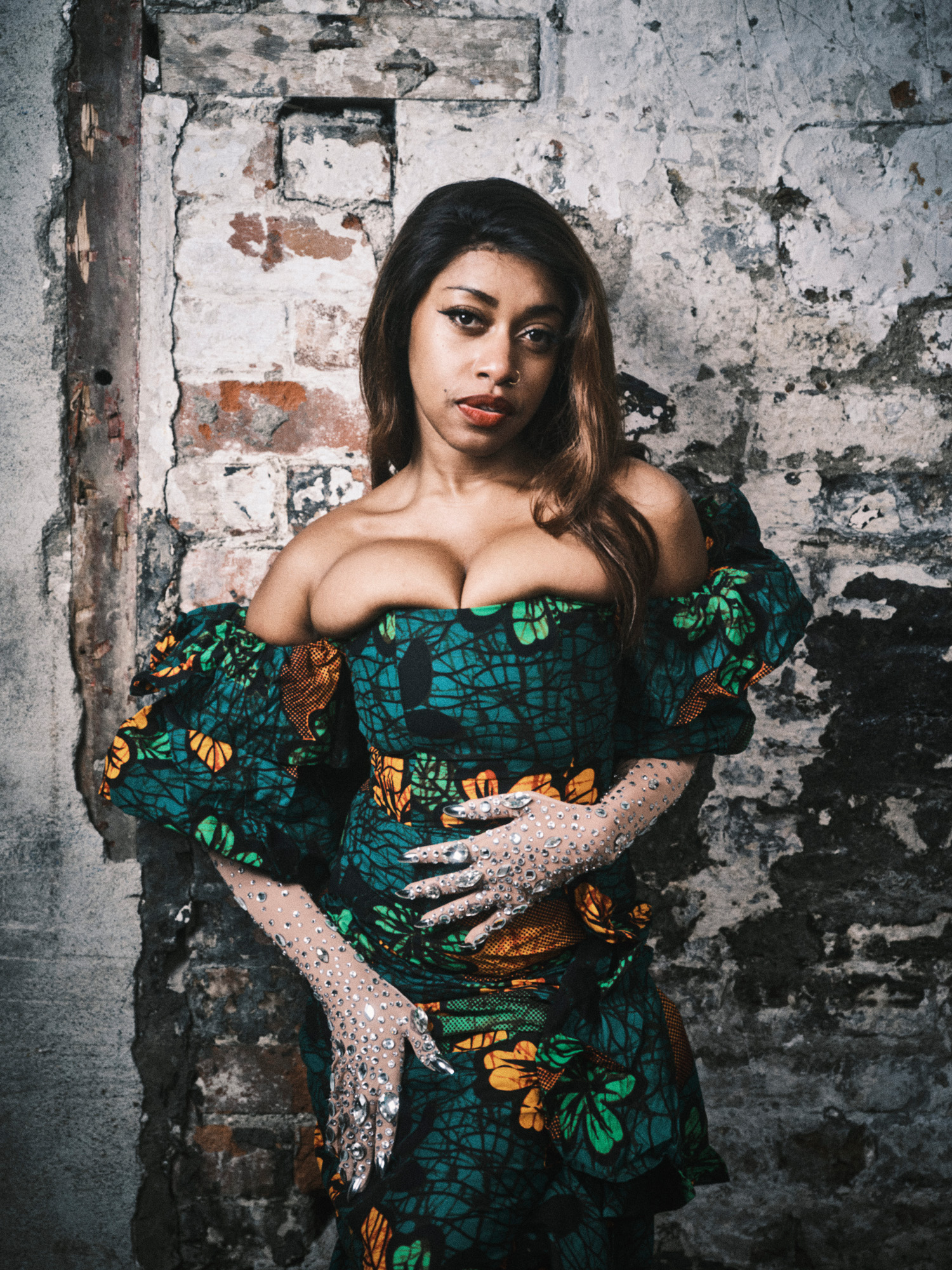

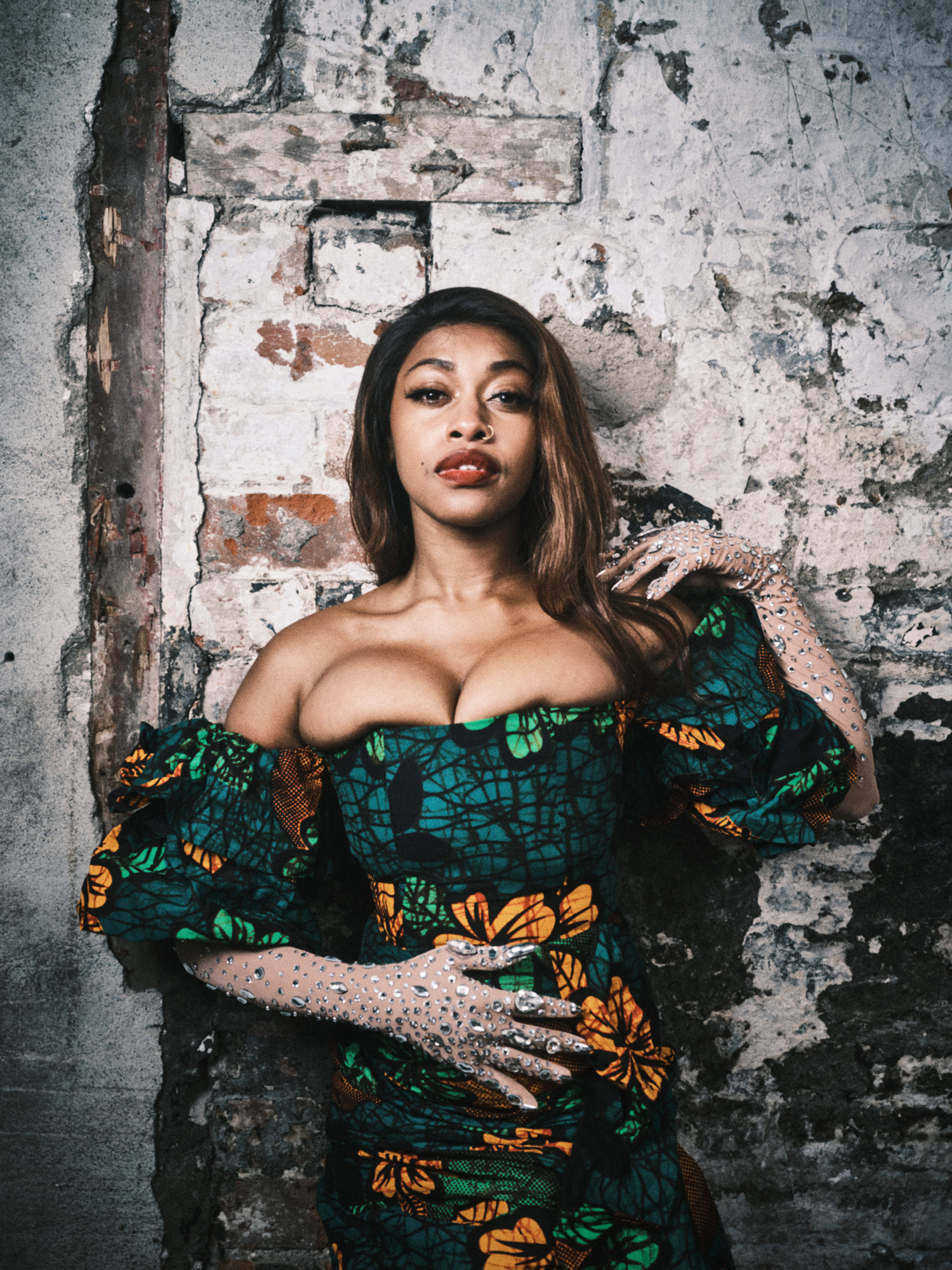

“I’m very lucky that I’m not concerned with the sophomore curse because actually the stuff that I was writing in December, bro, like I think I wrote my best song ever last month and I’m so excited because I’m getting better”
Denise Chaila
Chaila’s victory feels like a symbol of change for the Irish music landscape. In the time since hip-hop’s first Choice Prize success through Rusangano Family’s Let The Dead Bury The Dead, Irish hip-hop has been shouldering the heavy label of a ‘rising scene’. Go Bravely’s rapturousreception has pushed Chaila, and the entire genre, into becoming a mainstream mainstay – this is no longer music on the outskirts, hip-hop is now becoming a dominant force. Chaila is tentative in her views on what the award means for the genre as a whole. “I think that it’s important to remember that things can have many meanings. It’s impossible to see where they will end up until we have the privilege of hindsight. I think for now, what it means is that we’re giving permission to ourselves to celebrate and acknowledge different kinds of people” considers Chaila. “The way we continue to do that, to me, is going to say whether or not we are moving away from a certain sound or whether we had a moment. I, for one, feel really, really safe in an Ireland that can celebrate me and Ailbhe Reddy and Pillow Queens and Fontaines DC at the same time”.
Rather than taking a break and letting success settle in, Chaila has gone straight back to writing. “I’m always writing. Actually, I haven’t stopped writing since I released Go Bravely. I think I’ve been in the studio since some point in mid-September last year and I haven’t really gotten out”. Unfazed by the pressure of writing a follow-up to her debut, Chaila’s confidence in her new work is infectious. “’I’m very lucky that I’m not concerned with the sophomore curse because actually the stuff that I was writing in December, bro, like I think I wrote my best song ever last month and I’m so excited because I’m getting better”.
Chatting with Denise Chaila is a charming experience. Measured in her responses and always thoughtful, she speaks with an authority and presence that posits her at the intersection between a superstar musician and that cool university humanities lecturer who always has full attendance at their seminars. That intellectualism is at the core of her musical output and she enthuses about the influence literature has on her. “I’ve been reading all of these interesting texts like Adrienne Maree Brown, and all these poetry books and stuff, but then I’ve also been watching the Holy Mountain by Jodorowsky and just tripping out on all of these images and ideas”.
Chaila draws upon the interconnected relationship between hip-hop and the literary voice as an inspiration to her new “more mature” sound. “Voice as a part of Black work is something that is really profound, it’s really profoundly sacred. Actually, if you listen to James Baldwin speak or Maya Angelou reading her own poetry, or Audrey Lorde reading her essays or Rakim spitting bars, or Erykah Badu, you start to realize that there’s something very important about the multiplicity in the way a voice can be used” Chaila says. “Hip hop as an art form was crafted so that people could have the freedom to use their voice liberally in ways that in their day-to-day life, they might not have been permitted to. Rap is poetry and the only reason why we don’t recognize it as a legitimate form of art is racism”.
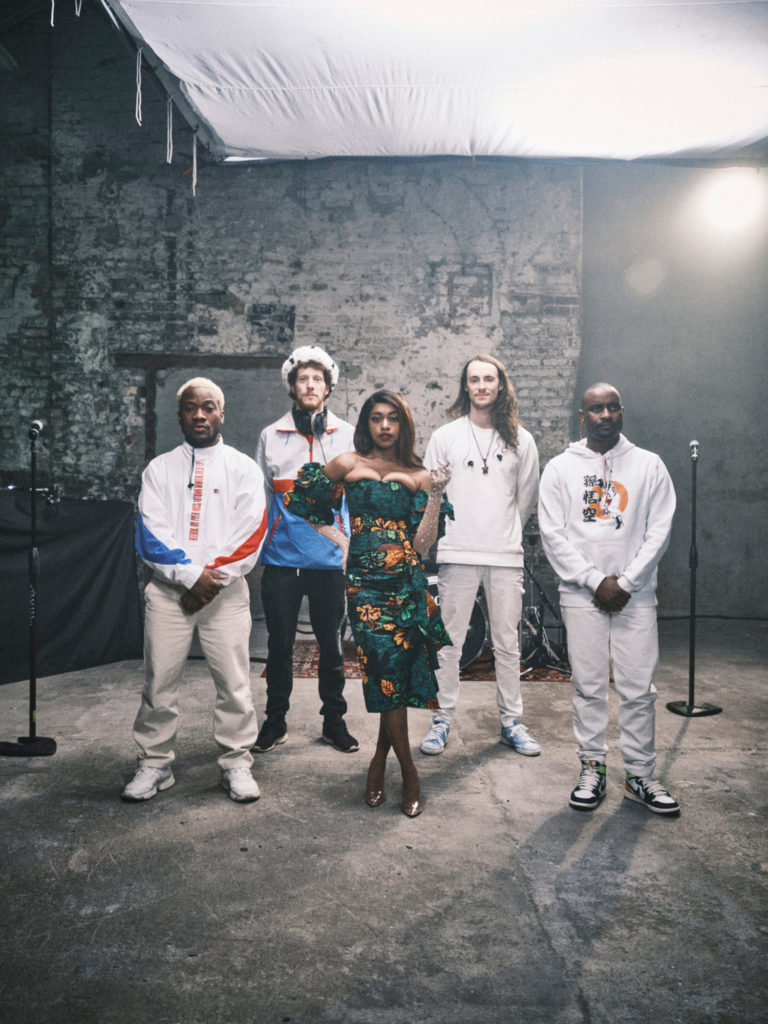

“In a five-year span, where people have died and the last words on their breath, have been about not being able to breathe, I think it’s really important for me to sing.”
Denise Chaila
For Denise, maturing means that she is “getting more comfortable using [her] voice in different ways”. “I think that something that’s always been really scary for me, and which speaks to a lot of the themes I’ve discussed is that for women, for black people, for black women, for black femmes, for black queer people, voices are a very political arena, and we can’t use our voices in the same way other people can”. This focus on the voice is a center-piece of Chaila’s work moving forward. She analyses the role of her voice with striking insight and conscientiousness. “When my music starts to evolve, and as it evolves, I’m noticing that I’m paying a lot more attention to voice and how it’s used. I’m very conscious that my voice is my instrument, and it’s my weapon. It’s my breath. In a five-year span, where people have died and the last words on their breath, have been about not being able to breathe, I think it’s really important for me to sing. I think it’s really important for me to rap, and to be comfortable in the alto of my voice, and to not modulate my voice to accommodate or display apologeticness because I feel threatened or unsafe”.
Her varied palette of influences and cultural reference points provides Chaila’s music with a rich depth. As she speaks about her influences they feel less like casual source materials and more like the lifeblood of her work. Her decision to release Go Bravely as a mixtape is inspired by the culture of hip-hop that has gone before her. “I think that hip-hop does artist development very well. A mixtape is like a rite of passage. It is permission granted to stay connected to your sensibilities and not anyone else’s. It is an opportunity to enter into a playground where it’s a free for all and you can pick up paint with your hands, throw it up the walls, and no one can tell you what to do”. She namechecks J Cole, Mac Miller, Chance The Rapper and Lil Wayne for their prolific mixtape releases before saying “I am definitely honoring my elders when I say it’s a mixtape. I am intentional about that”.
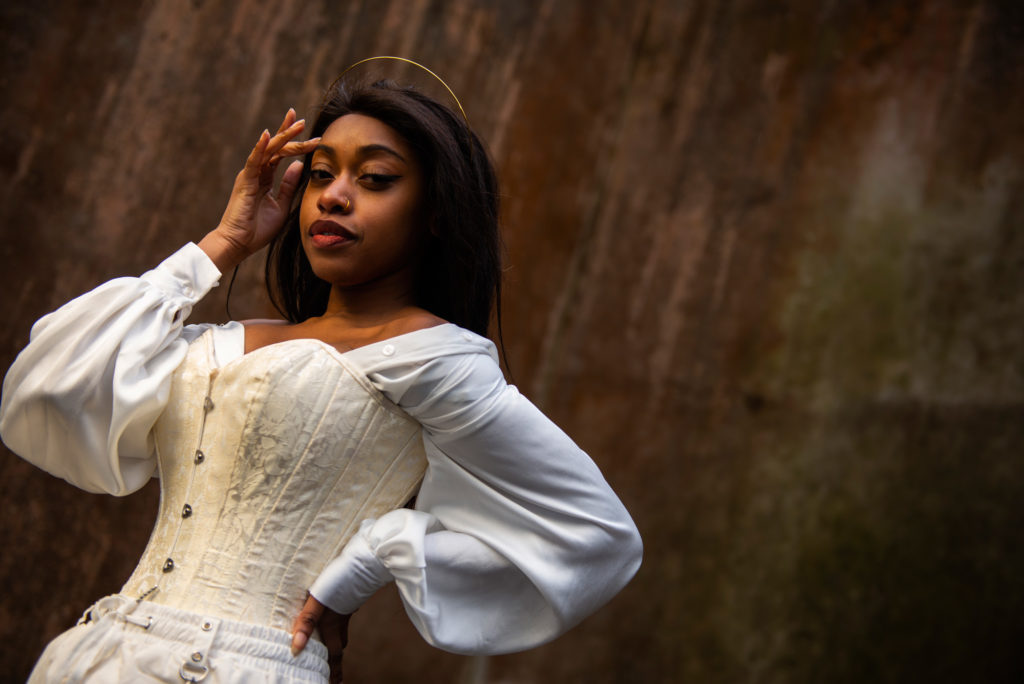

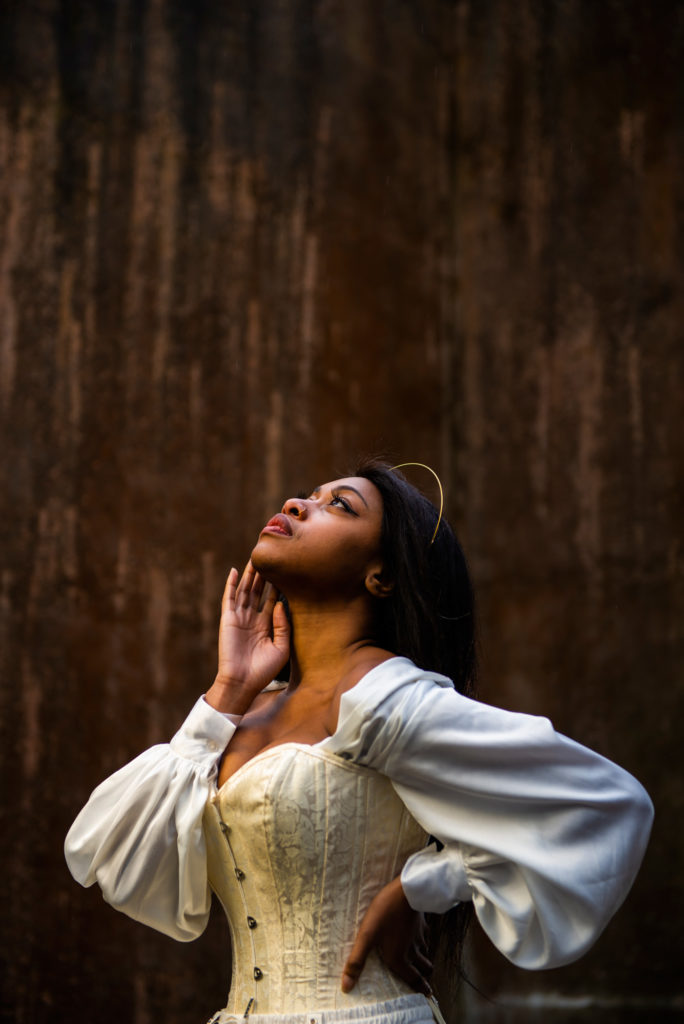

“We’re gonna go as far and as fast as we can, in a healthy way,
Denise Chaila
with what we love and it will take me
where it takes me.”
Go Bravely shows that Chaila’s reference points also extend to modern nerd culture. Mentioning Avatar’s Zuko and Sailor Moon in the same breath as Oscar Wilde and Shaka Zulu, she balances literary, academic thought with popular culture in a way that feels exciting and unpretentious. Chaila may be a thoughtful wordsmith wielding power through her writing but she’s also just like the rest of us, seeking comfort in animation. “The nerdy references, I think, are what is keeping us alive. Lockdown hit and what do we all do? We went online, and we like went back to our childhood, we played board games, we watch old movies, we went back to old books, we were playing. Our imagination as a force for salvation is something that we ignore too much. We’re adults, not dead, you know, and it’s really important that we stay alive in our playfulness”. Chaila is also conscious of the experiences of Black women in nerd spaces. “I want to be able to facilitate space as well, actually, for people to break their definitions of what we should be talking about and what’s important to talk about. When Megan Thee Stallion makes references to anime, I get really happy because I get to see Black women occupying that space where they can talk as an expert in a light-hearted way about these things. You know, sometimes you just need to take space, you just have to make life fun”.
An hour spent in Chaila’s company feels like too little. She’s an endless well of knowledge and insight, providing loquacious answers that each open up doors to a hundred offshoot discussions. This worldliness is reflected in her art – she moves effortlessly from topic to topic, delivering informative sermons wrapped up as infectious three-minute songs. Chaila is on top of the world and doesn’t look to be stopping any time soon. “What I want to do this year, and next year, and for the rest of my career, is to make my own lane, is to stay married to my voice, to maintain my integrity, to keep my freedom to say what I want to” declares Chaila. “We’re gonna go as far and as fast as we can, in a healthy way, with what we love and it will take me where it takes me. And then when it stops, I will stop. That’s all there is to it. But hopefully, we’ll be playing Madison Square Garden by 2023”. We’ll see you from the front row, Denise.
Watch Denise and a host of others from the comfort of your living room this St. Patrick’s Day as part of Jameson Connects ‘Join In’ global event. Join in wherever you are…
Register for tickets here. Enjoy Jameson’s responsibly. Visit www.drinkaware.ie for more information.


